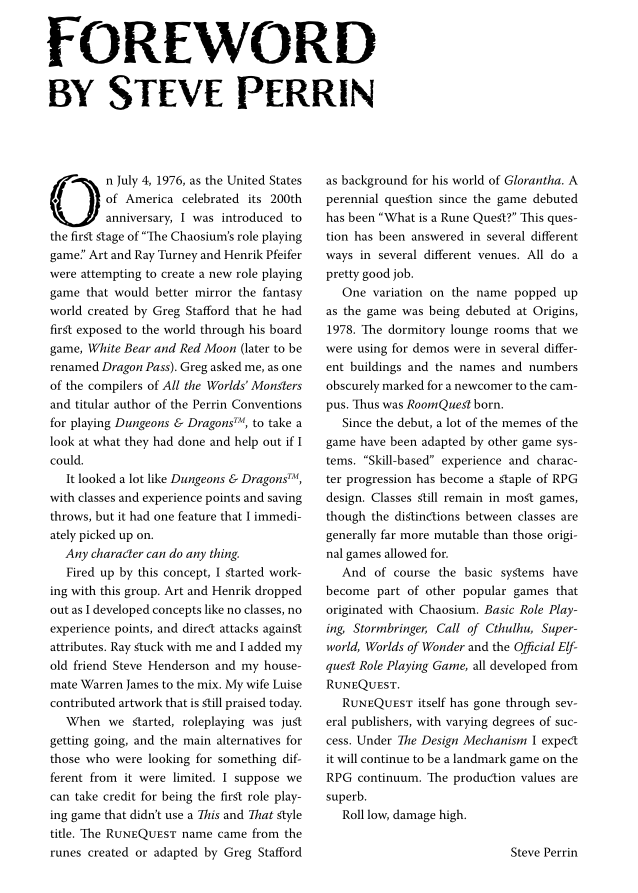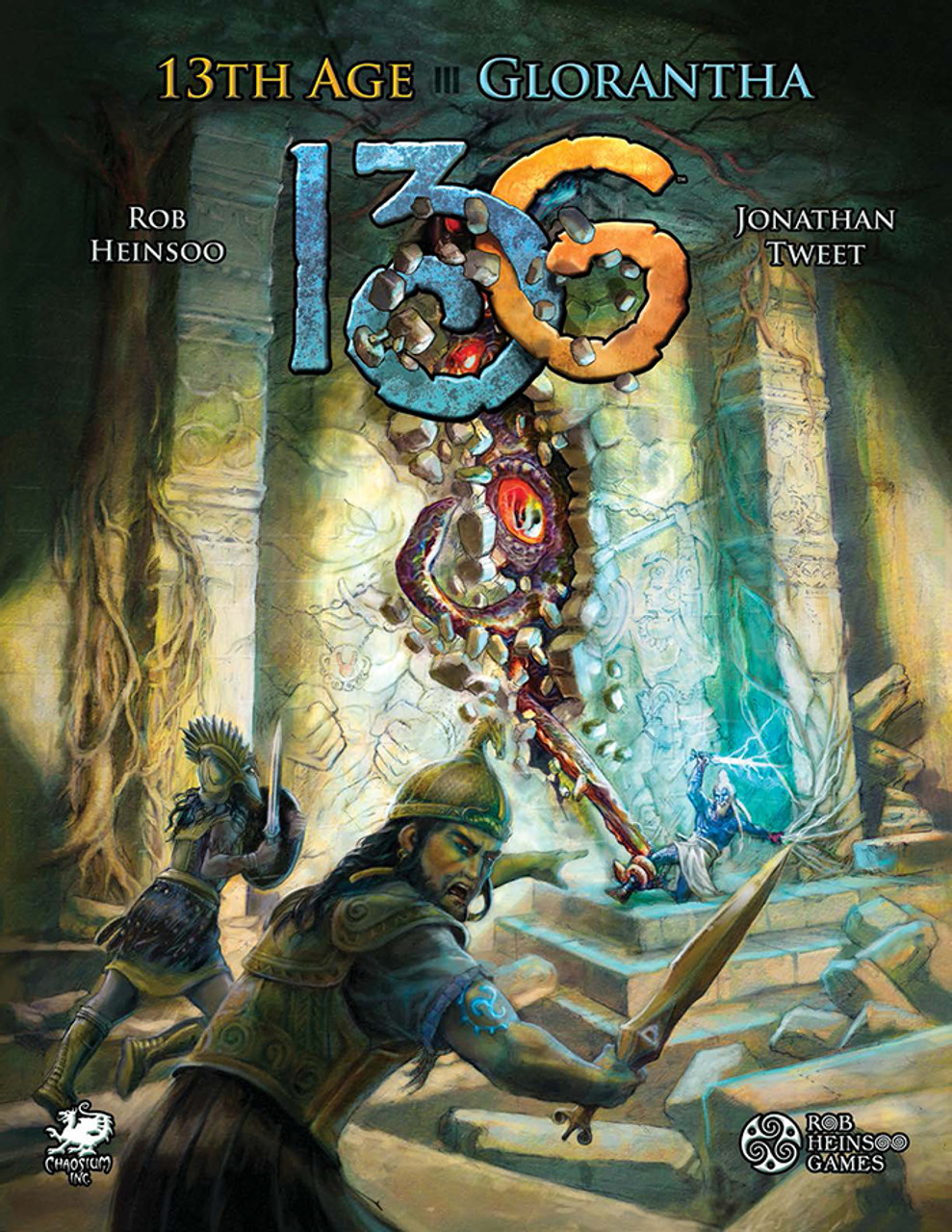I’ve started dipping my toes in the deep sea that is Glorantha and wow, this is great. If I run anything I’ll probably drop all the Campbell-Jung-Eliade drum circle stuff but really, I feel like a dumbass not having gotten into this earlier.
What weird bits of lore are especially worth going down a rabbit hole for?
What weird bits of lore are especially worth going down a rabbit hole for?






